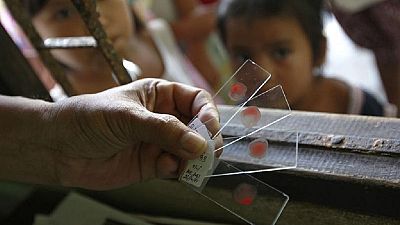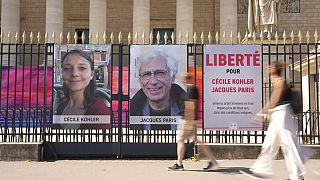Malaria
The world’s first malaria vaccine, RTS,S, will be rolled out in pilot projects in sub-Saharan Africa, the World Health Organization (WHO) disclosed late on Thursday. The body is expected to name countries to be involved in the pilot programme soon.
According to a WHO statement, funding is secured for the initial phase of the programme and vaccinations are due to begin in 2018. ‘‘The vaccine, known as RTS,S, acts against P. falciparum, the most deadly malaria parasite globally, and the most prevalent in Africa. Advanced clinical trials have shown RTS,S to provide partial protection against malaria in young children,’‘ a statement from the global health body noted.
“The pilot deployment of this first-generation vaccine marks a milestone in the fight against malaria. These pilot projects will provide the evidence we need from real-life settings to make informed decisions on whether to deploy the vaccine on a wide scale,” said Dr Pedro Alonso, Director of the WHO Global Malaria Programme.
On the issue of ‘Country selection,’ the WHO statement said ‘‘Consultations are ongoing and the names of the 3 selected countries will be announced in the coming weeks.’‘
RTS,S is touted as the first malaria vaccine to successfully complete pivotal Phase 3 testing. The Phase 3 trial enrolled more than 15,000 infants and young children in 7 countries in sub-Saharan Africa.
Countries that participated in the Phase 3 clinical trials will be prioritized for inclusion in the WHO pilot programme.
Facts about financing of the vaccine
- The Global Fund to Fight AIDS, Tuberculosis and Malaria has approved U$15 million for the malaria vaccine pilots, the amount will fully fund the first phase of the programme.
- Earlier this year, the Gavi, the Vaccine Alliance and UNITAID announced commitments of up to $27.5 million and $9.6 million, respectively, for the first 4 years of the vaccine programme.
- RTS,S was developed through a partnership between GlaxoSmithKline and the PATH Malaria Vaccine Initiative (MVI)
- The two bodies were received support from the Bill & Melinda Gates Foundation and from a network of African research centres.
“WHO recognizes and commends the leadership and support of all funding agencies and partners who have made this achievement possible,” said Dr Jean-Marie Okwo-Bele, Director of the WHO Department of Immunization, Vaccines and Biologicals.
WHO also added that two of its advisory bodies – the Strategic Advisory Group of Experts (SAGE) on Immunization and the Malaria Policy Advisory Committee (MPAC) – had recommended pilot implementation of the RTS,S vaccine in 3 to 5 settings in sub-Saharan Africa.
There were 2 target age groups in the Phase 3 RTS,S trials:
1. Infants who received the malaria vaccine together with other routine childhood vaccines at 6, 10 and 14 weeks of age.
2. Older children who received their first dose of the malaria vaccine between 5 and 17 months of age.














01:04
South Africa reports new bird flu outbreak on poultry farms
Go to video
Paraguayan town celebrates vibrant Kamba Ra'anga festival with masks, fire and tradition
11:15
AI drones lead breakthrough against malaria in Africa [Business Africa]
Go to video
Over 40 killed in attack on Sudanese hospital: WHO Chief condemns “Appalling” strike
01:29
US medication safety agency approves biannual preventive HIV shot
01:47
Chinese city of Xuchang is world's biggest producer of wigs